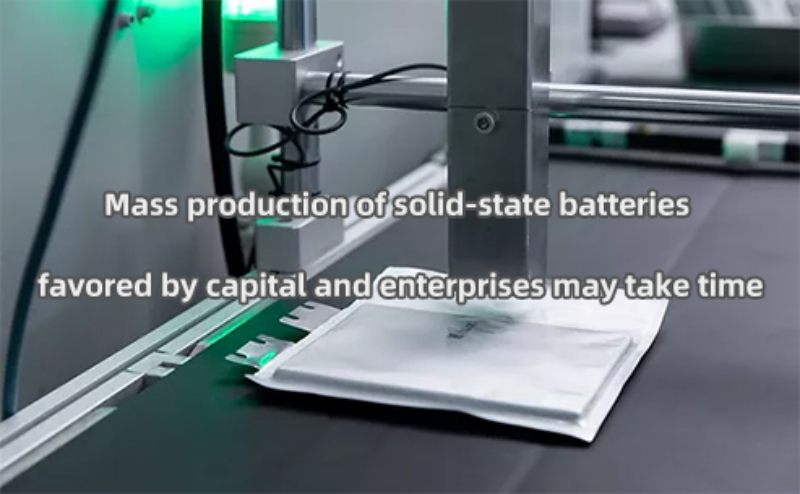
Main content:
Recently, ENPOWER, a solid-state battery innovation company, announced the completion of its Series A+ financing of over $20 million. This round of financing was jointly led by SEQUOIA CHINA and DAYONE CAPITAL, with participation from GAC CAPITAL, BR CAPITAL, APOCALYPSE, and nullmox. This is another round of financing that ENPOWER has completed to accelerate the industrialization of its solid-state lithium-ion battery after the A round of financing over 100 million RMB at the beginning of this year. The funds will be mainly used for product iteration, market expansion and production line construction.
ENPOWER is an innovative company focusing on the R&D and industrialization of next-generation batteries such as lithium metal batteries and solid-state batteries and their core materials. It has R&D and manufacturing centers in China, the United States and Japan. The company is committed to building a complete solid-state battery industry chain in China. Currently, it can simultaneously improve battery energy density and solve problems in lithium battery safety. In addition to ENPOWER, a number of solid-state battery industry chain companies have also won the favor of capital.
1.Capital helps accelerate the industrialization of solid-state batteries
In June of this year alone, TALENT NEW ENERGY, ProLogium, and ISS (full name Ion Storage Systems) received capital financing. At the beginning of June, TALENT NEW ENERGY announced that it had completed the A++ round of financing of several hundred million RMB. This round of financing was mainly used for production line construction, product development and talent construction. On March 8 this year, TALENT NEW ENERGY just completed the A+ round of financing, exclusively invested by County Garden Venture Capital.
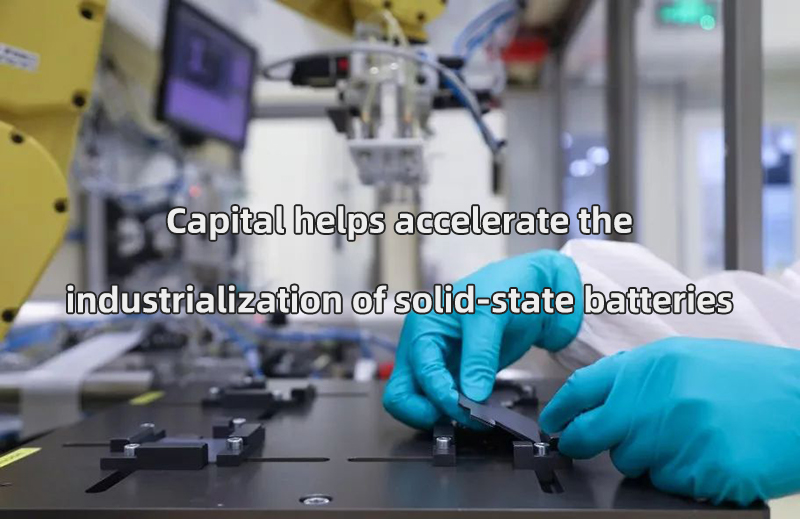
TALENT NEW ENERGY focuses on the development and industrialization of new solid-state lithium batteries and key lithium battery materials. It is reported that TALENT NEW ENERGY's first semi-solid power battery production line in Chongqing will be put into operation in October this year. On June 8, ProLogium received tens of millions of dollars in investment from China Reform Fund. The funds will be used for the mass production of ProLogium solid-state lithium batteries and the expansion plan in mainland China to accelerate the provision of solid-state battery solutions for strategic partners of new energy vehicles.
ProLogium invented the world's first solid-state lithium ceramic battery. In January this year, the company received nearly 100 million euros of investment from Mercedes-Benz. Its first solid-state battery production line may be completed by the end of this year, and it is considering listing in other countries this year and next. On June 11, solid-state battery maker ISS raised $30 million in Series A funding. The company produces high-energy-density solid-state lithium metal batteries that require no external heating or compression. It intends to use the funds to expand its facility at its Beltsville, Maryland headquarters to commission and certify a battery production line capable of producing 10MWh/year of next-generation solid-state batteries.
2.Solid-state batteries may be the future development direction of lithium batteries
Since it is so concerned by capital, what is solid-state battery and how big is its market space? A solid-state battery refers to a lithium-ion battery that uses a solid-state electrolyte. Compared with traditional liquid lithium batteries, solid-state batteries are safer, have higher energy density, and have better cycle performance. At the same time, solid-state battery technology can greatly reduce the cost of electric vehicles. Some research institutions believe that the cost of mass-produced solid-state batteries is only 40% of the current lithium-ion batteries. Therefore, solid-state batteries are called the future development direction of lithium batteries.
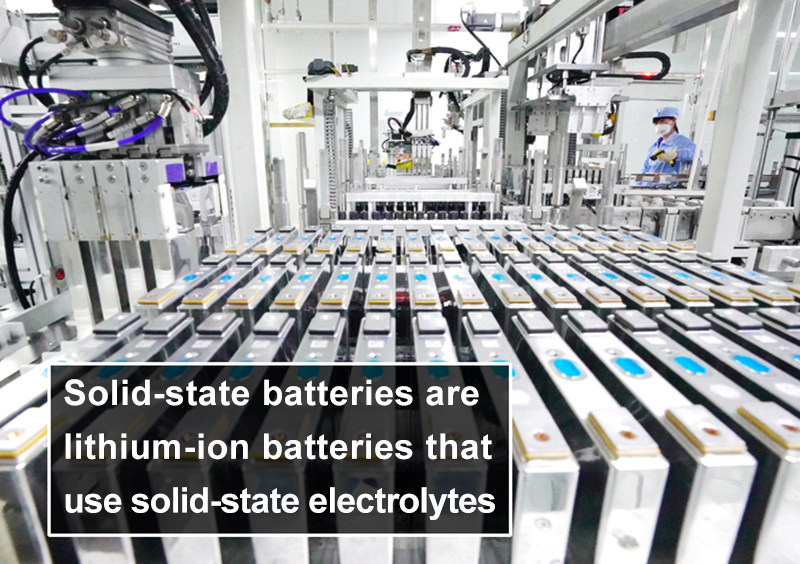
All-solid-state batteries are broadly classified into oxide, sulfide, and polymer-based batteries.By 2030, oxide, sulfide, and polymer-based batteries are forecast to account for 18%, 29%, and 37% of the segment, respectively, while hybrid all-solid-state batteries account for 13% of the market.In terms of market space, it is expected that from this year to 2025, the global all solid state battery market is expected to grow from 2.1GWh to 30GWh, and then reach 160.1GWh in 2030. By 2030, the market size of solid-state batteries is expected to exceed $6 billion.
3.Global companies speed up the deployment of solid-state batteries
Not only the capital side, but also global companies are optimistic about the huge potential of solid-state batteries, and have already laid out in advance and accelerated mass production:
For Chinese companies, on January 22 this year, the first batch of 50 DONGFENG-Ganfeng high-energy solid-state battery vehicles jointly developed by DONGFENG MOTOR and GanfengLithium were delivered in Xinyu City, Jiangxi Province, becoming the world's first solid-state battery vehicle demonstration operation project. On May 27, the relevant responsible person of GOTION said that the 360Wh/kg ternary semi-solid battery developed by the company will be mass-produced this year. At the same time, the 400Wh/kg ternary semi-solid battery currently has prototype samples in the company's laboratory.
On June 8, GanfengLithium stated that the company's first-generation solid-state battery is a semi-solid-state battery, and the planned 2GWh first-generation solid-state battery capacity is expected to be gradually released this year. On June 14, the chairman of CALB revealed that the company has been working on the research and development of solid-state batteries.First is lean liquefaction, then semi-solid, and finally solid. Lean liquefaction can reach 400Wh/kg, semi-solid can reach 450Wh/kg, and quasi-solid can reach 500Wh/kg. Compared with Chinese companies, the research and development of solid-state batteries in other countries has been carried out earlier, especially car companies, so the goals are also clearer:
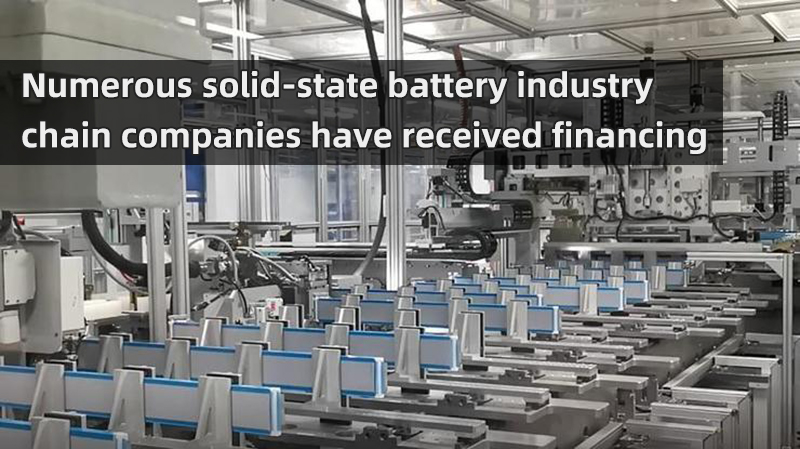
In April 2022, NISSAN released a prototype of solid-state battery production equipment at the Yokohama plant, and plans to build an all-solid-state battery trial production line in 2024 and bring solid-state batteries to the market in 2028. In the same month, HONDA released the latest measures for the electric vehicle business towards 2030. Among them, it is mentioned that: the development of an all-solid-state battery demonstration production line, with an investment of about 43 billion JPY (about 2.18 billion RMB), is scheduled to start in the spring of 2024. In June, Solid Power, a developer of solid-state batteries for electric vehicles, announced that it had completed the installation of its automated production line and started trial production.
It is reported that the production line will be put into production of new sulfide solid-state batteries. Before the end of this year, Solid Power will test the new solid-state battery and deliver it to manufacturers including Ford and BMW. In terms of time planning, TOYOTA plans to achieve small-scale mass production of all-solid-state batteries by 2025, and will first be installed on hybrid models. All-solid-state batteries must achieve continuous and stable production by 2030. HYUNDAI plans to trial production of electric vehicles equipped with solid-state batteries in 2025, with full-scale mass production around 2030; BMW plans to launch a prototype car equipped with solid-state batteries by 2025 and achieve mass production by 2030; LG Energy Solution expects to achieve mass production of all-solid-state batteries in 2026.
4.Mass production of solid-state batteries cannot be realized in the near future
Limited by current technology, solid-state batteries are still a long way from mass production. Car companies and battery companies proposed that "solid-state batteries can be mass-produced and applied in the near future", the "solid-state batteries" referred to are not real all-solid-state batteries, but their transitional solutions - semi-solid-state batteries. The industry generally believes that it will take 5-10 years for all-solid-state batteries to be mass-produced. In March this year, an industry expert said that 2025 is a critical period for the transition from liquid batteries to solid-state batteries.
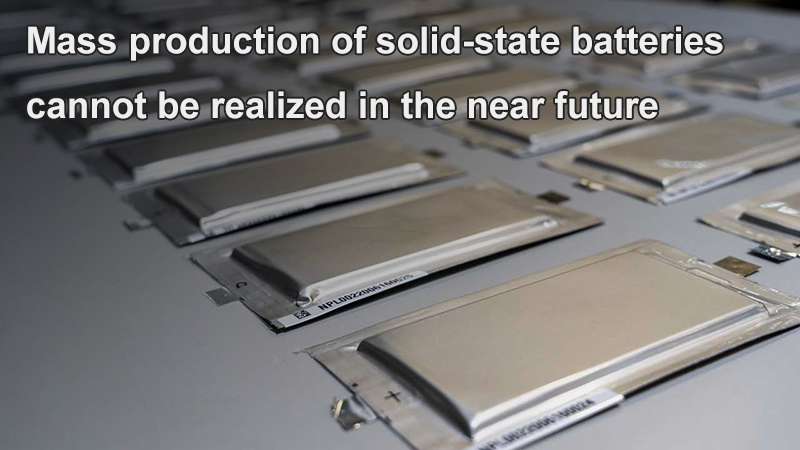
According to the expert, the 2025 phase will be a liquid electrolyte system; 2030 will be the transition from liquid to solid state; 2030 should be a key node in the development of all-solid-state batteries; in 2030, he estimates that China's all-solid-state batteries will account for less Will exceed 1%; the goal in 2035 is to achieve industrialization including all-solid-state batteries. In short, In the comparison of solid state batteries vs lithium ion, solid-state batteries have obvious advantages, but before mass production, technical problems such as low lithium ion conductivity and high cost of solid-state electrolyte materials must be solved.
















